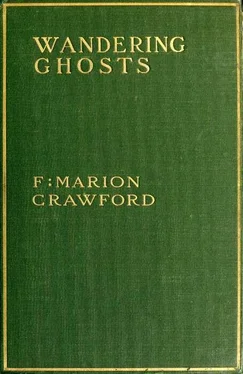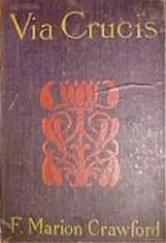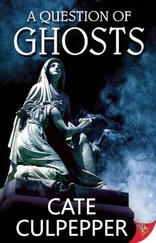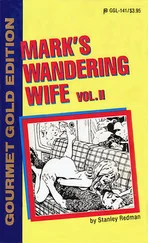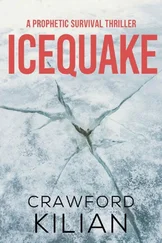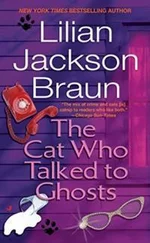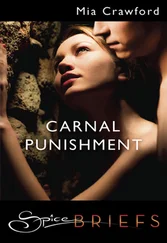F. Crawford - Wandering Ghosts
Здесь есть возможность читать онлайн «F. Crawford - Wandering Ghosts» весь текст электронной книги совершенно бесплатно (целиком полную версию без сокращений). В некоторых случаях можно слушать аудио, скачать через торрент в формате fb2 и присутствует краткое содержание. Год выпуска: 2012, Жанр: Ужасы и Мистика, на английском языке. Описание произведения, (предисловие) а так же отзывы посетителей доступны на портале библиотеки ЛибКат.
- Название:Wandering Ghosts
- Автор:
- Жанр:
- Год:2012
- ISBN:нет данных
- Рейтинг книги:3 / 5. Голосов: 1
-
Избранное:Добавить в избранное
- Отзывы:
-
Ваша оценка:
- 60
- 1
- 2
- 3
- 4
- 5
Wandering Ghosts: краткое содержание, описание и аннотация
Предлагаем к чтению аннотацию, описание, краткое содержание или предисловие (зависит от того, что написал сам автор книги «Wandering Ghosts»). Если вы не нашли необходимую информацию о книге — напишите в комментариях, мы постараемся отыскать её.
Wandering Ghosts — читать онлайн бесплатно полную книгу (весь текст) целиком
Ниже представлен текст книги, разбитый по страницам. Система сохранения места последней прочитанной страницы, позволяет с удобством читать онлайн бесплатно книгу «Wandering Ghosts», без необходимости каждый раз заново искать на чём Вы остановились. Поставьте закладку, и сможете в любой момент перейти на страницу, на которой закончили чтение.
Интервал:
Закладка:
Besides, what is there to prove that Luke killed his wife? I would not even suggest such a thing to any one but you. After all, there was nothing but the coincidence that poor little Mrs. Pratt died suddenly in her bed a few days after I told that story at dinner. She was not the only woman who ever died like that. Luke got the doctor over from the next parish, and they agreed that she had died of something the matter with her heart. Why not? It's common enough.
Of course, there was the ladle. I never told anybody about that, and it made me start when I found it in the cupboard in the bedroom. It was new, too—a little tinned iron ladle that had not been in the fire more than once or twice, and there was some lead in it that had been melted, and stuck to the bottom of the bowl, all grey, with hardened dross on it. But that proves nothing. A country doctor is generally a handy man, who does everything for himself, and Luke may have had a dozen reasons for melting a little lead in a ladle. He was fond of sea-fishing, for instance, and he may have cast a sinker for a night-line; perhaps it was a weight for the hall clock, or something like that. All the same, when I found it I had a rather queer sensation, because it looked so much like the thing I had described when I told them the story. Do you understand? It affected me unpleasantly, and I threw it away; it's at the bottom of the sea a mile from the Spit, and it will be jolly well rusted beyond recognising if it's ever washed up by the tide.
You see, Luke must have bought it in the village, years ago, for the man sells just such ladles still. I suppose they are used in cooking. In any case, there was no reason why an inquisitive housemaid should find such a thing lying about, with lead in it, and wonder what it was, and perhaps talk to the maid who heard me tell the story at dinner—for that girl married the plumber's son in the village, and may remember the whole thing.
You understand me, don't you? Now that Luke Pratt is dead and gone, and lies buried beside his wife, with an honest man's tombstone at his head, I should not care to stir up anything that could hurt his memory. They are both dead, and their son, too. There was trouble enough about Luke's death, as it was.
How? He was found dead on the beach one morning, and there was a coroner's inquest. There were marks on his throat, but he had not been robbed. The verdict was that he had come to his end "by the hands or teeth of some person or animal unknown," for half the jury thought it might have been a big dog that had thrown him down and gripped his windpipe, though the skin of his throat was not broken. No one knew at what time he had gone out, nor where he had been. He was found lying on his back above high-water mark, and an old cardboard bandbox that had belonged to his wife lay under his hand, open. The lid had fallen off. He seemed to have been carrying home a skull in the box—doctors are fond of collecting such things. It had rolled out and lay near his head, and it was a remarkably fine skull, rather small, beautifully shaped and very white, with perfect teeth. That is to say, the upper jaw was perfect, but there was no lower one at all, when I first saw it.
Yes, I found it here when I came. You see, it was very white and polished, like a thing meant to be kept under a glass case, and the people did not know where it came from, nor what to do with it; so they put it back into the bandbox and set it on the shelf of the cupboard in the best bedroom, and of course they showed it to me when I took possession. I was taken down to the beach, too, to be shown the place where Luke was found, and the old fisherman explained just how he was lying, and the skull beside him. The only point he could not explain was why the skull had rolled up the sloping sand toward Luke's head instead of rolling downhill to his feet. It did not seem odd to me at the time, but I have often thought of it since, for the place is rather steep. I'll take you there to-morrow if you like—I made a sort of cairn of stones there afterward.
When he fell down, or was thrown down—whichever happened—the bandbox struck the sand, and the lid came off, and the thing came out and ought to have rolled down. But it didn't. It was close to his head, almost touching it, and turned with the face toward it. I say it didn't strike me as odd when the man told me; but I could not help thinking about it afterward, again and again, till I saw a picture of it all when I closed my eyes; and then I began to ask myself why the plaguey thing had rolled up instead of down, and why it had stopped near Luke's head instead of anywhere else, a yard away, for instance.
You naturally want to know what conclusion I reached, don't you? None that at all explained the rolling, at all events. But I got something else into my head, after a time, that made me feel downright uncomfortable.
Oh, I don't mean as to anything supernatural! There may be ghosts, or there may not be. If there are, I'm not inclined to believe that they can hurt living people except by frightening them, and, for my part, I would rather face any shape of ghost than a fog in the Channel when it's crowded. No. What bothered me was just a foolish idea, that's all, and I cannot tell how it began, nor what made it grow till it turned into a certainty.
I was thinking about Luke and his poor wife one evening over my pipe and a dull book, when it occurred to me that the skull might possibly be hers, and I have never got rid of the thought since. You'll tell me there's no sense in it, no doubt; that Mrs. Pratt was buried like a Christian and is lying in the churchyard where they put her, and that it's perfectly monstrous to suppose her husband kept her skull in her old bandbox in his bedroom. All the same, in the face of reason, and common sense, and probability, I'm convinced that he did. Doctors do all sorts of queer things that would make men like you and me feel creepy, and those are just the things that don't seem probable, nor logical, nor sensible to us.
Then, don't you see?—if it really was her skull, poor woman, the only way of accounting for his having it is that he really killed her, and did it in that way, as the woman killed her husbands in the story, and that he was afraid there might be an examination some day which would betray him. You see, I told that too, and I believe it had really happened some fifty or sixty years ago. They dug up the three skulls, you know, and there was a small lump of lead rattling about in each one. That was what hanged the woman. Luke remembered that, I'm sure. I don't want to know what he did when he thought of it; my taste never ran in the direction of horrors, and I don't fancy you care for them either, do you? No. If you did, you might supply what is wanting to the story.
It must have been rather grim, eh? I wish I did not see the whole thing so distinctly, just as everything must have happened. He took it the night before she was buried, I'm sure, after the coffin had been shut, and when the servant girl was asleep. I would bet anything, that when he'd got it, he put something under the sheet in its place, to fill up and look like it. What do you suppose he put there, under the sheet?
I don't wonder you take me up on what I'm saying! First I tell you that I don't want to know what happened, and that I hate to think about horrors, and then I describe the whole thing to you as if I had seen it. I'm quite sure that it was her work-bag that he put there. I remember the bag very well, for she always used it of an evening; it was made of brown plush, and when it was stuffed full it was about the size of—you understand. Yes, there I am, at it again! You may laugh at me, but you don't live here alone, where it was done, and you didn't tell Luke the story about the melted lead. I'm not nervous, I tell you, but sometimes I begin to feel that I understand why some people are. I dwell on all this when I'm alone, and I dream of it, and when that thing screams—well, frankly, I don't like the noise any more than you do, though I should be used to it by this time.
Читать дальшеИнтервал:
Закладка:
Похожие книги на «Wandering Ghosts»
Представляем Вашему вниманию похожие книги на «Wandering Ghosts» списком для выбора. Мы отобрали схожую по названию и смыслу литературу в надежде предоставить читателям больше вариантов отыскать новые, интересные, ещё непрочитанные произведения.
Обсуждение, отзывы о книге «Wandering Ghosts» и просто собственные мнения читателей. Оставьте ваши комментарии, напишите, что Вы думаете о произведении, его смысле или главных героях. Укажите что конкретно понравилось, а что нет, и почему Вы так считаете.
